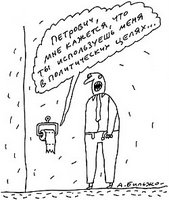 Last Thursday, an agreement was signed between Turkey, Georgia and Azerbaijan on the contruction of the Kars-Tbilisi-Baku railroad, further barring Armenia from infrastructural cooperation in the western Caucasus. Effectively, Armenia is increasingly isolated from regional developments of great consequence for the country's future. As a consequence, Armenia may be further driven into the arms of Russia, strengthening the delineation of spheres of interest in the Caucasus between Russia and the West.
Last Thursday, an agreement was signed between Turkey, Georgia and Azerbaijan on the contruction of the Kars-Tbilisi-Baku railroad, further barring Armenia from infrastructural cooperation in the western Caucasus. Effectively, Armenia is increasingly isolated from regional developments of great consequence for the country's future. As a consequence, Armenia may be further driven into the arms of Russia, strengthening the delineation of spheres of interest in the Caucasus between Russia and the West.The agreement, signed in Baku, by Turkish Prime Minister Erdoğan, Azerbaijani president Aliyev and Georgian President Saakashvili, bypasses Armenia by opting for the Kars-Akhalkalaki-Tblisi-Baku stretch, instead of the previously designated , and already existent, Kars-Gyumri rail line, going through Armenia. The Armenian-Turkish border, and along with it the Kars-Gyumri railway, has been closed since 1993, due to the 1988-1994 Armenian-Azerbaijani war over Nagorno-Karabağ. Thus, the Kars-Gyumri alternative would have meant reopening the border - a matter too difficult for Turkey to deal with in view of the sensitive Armenian question and upcoming parliamentary elections. As the opposite now is the case, Thursday's Baku agreement, by excluding Armenia, only serves to prolong a stifling status quo in relations between Yerevan and Ankara, and furthermore risks regionally isolating Armenia to the benefit of Russia.
, and already existent, Kars-Gyumri rail line, going through Armenia. The Armenian-Turkish border, and along with it the Kars-Gyumri railway, has been closed since 1993, due to the 1988-1994 Armenian-Azerbaijani war over Nagorno-Karabağ. Thus, the Kars-Gyumri alternative would have meant reopening the border - a matter too difficult for Turkey to deal with in view of the sensitive Armenian question and upcoming parliamentary elections. As the opposite now is the case, Thursday's Baku agreement, by excluding Armenia, only serves to prolong a stifling status quo in relations between Yerevan and Ankara, and furthermore risks regionally isolating Armenia to the benefit of Russia.
 , and already existent, Kars-Gyumri rail line, going through Armenia. The Armenian-Turkish border, and along with it the Kars-Gyumri railway, has been closed since 1993, due to the 1988-1994 Armenian-Azerbaijani war over Nagorno-Karabağ. Thus, the Kars-Gyumri alternative would have meant reopening the border - a matter too difficult for Turkey to deal with in view of the sensitive Armenian question and upcoming parliamentary elections. As the opposite now is the case, Thursday's Baku agreement, by excluding Armenia, only serves to prolong a stifling status quo in relations between Yerevan and Ankara, and furthermore risks regionally isolating Armenia to the benefit of Russia.
, and already existent, Kars-Gyumri rail line, going through Armenia. The Armenian-Turkish border, and along with it the Kars-Gyumri railway, has been closed since 1993, due to the 1988-1994 Armenian-Azerbaijani war over Nagorno-Karabağ. Thus, the Kars-Gyumri alternative would have meant reopening the border - a matter too difficult for Turkey to deal with in view of the sensitive Armenian question and upcoming parliamentary elections. As the opposite now is the case, Thursday's Baku agreement, by excluding Armenia, only serves to prolong a stifling status quo in relations between Yerevan and Ankara, and furthermore risks regionally isolating Armenia to the benefit of Russia.The idea of the railway project, popularly known as the Iron Silk Road, originates from the 1960s, when the first plans to form, what is now known as, the Trans-Asia Railway Network (TAR) were raised. From the original plan of uniting 14.000 kms railroad from Singapore to Turkey, the scheme has grown to fathom some 81.000 kms, spanning all over the Eurasian continent. Thus, in November last year an agreement was signed to this end, under the aegis of the UN Economic and Social Commission for Asia and the Pacific (UNESCAP), as reported by RFE/RL-Online.
On the regional level, the question has been how to unite the various railway systems, linking the countries in the Caucasus with Turkey, as part of the larger Iron Silk Road
 project. Thus, a corresponding agreement was reached, by the Parliamentary Assembly of the Black Sea Economic Cooperation (PABSEC), as early as in 2005. It stipulated that the Kars-Gyumri-Tbilisi-Baku railway should be considered the only viable option for uniting the regional railway network, while it would connect all countries in the region, not need any substantial investments, and avoid any potential dividing lines. However, keeping to these and similar committments has proven very difficult.
project. Thus, a corresponding agreement was reached, by the Parliamentary Assembly of the Black Sea Economic Cooperation (PABSEC), as early as in 2005. It stipulated that the Kars-Gyumri-Tbilisi-Baku railway should be considered the only viable option for uniting the regional railway network, while it would connect all countries in the region, not need any substantial investments, and avoid any potential dividing lines. However, keeping to these and similar committments has proven very difficult.On a strategic level, the Kars-Tbilisi-Baku agreement further underlines how the delineation of spheres of interest in the Caucasus between Russia and the West is exacerbated. Leaving Armenia out of the dynamics of regional development in this way, poses the question of how far-reaching a tacit understanding there is, that "Armenia belongs to Moscow." Another factor for leaving Yerevan at the side of the road, might be that western interests want to avoid being exposed to the risks of relying on infrastructure that, in event of crisis, may be controlled by Russia. A 5,000 man strong Russian troop contingent is currently posted on Armenian territory.
The agreement also shows how both Russia and the West attach an increasing importance to control over strategic infrastructure. It is no secret that the West's most important regional infrastructure project in Eurasia, namely the Baku-Tbilisi-Ceyhan pipeline (BTC), runs through Azerbaijan, Georgia, and Turkey, partly due to the ambition of strategic control. That Moscow has been negative to reopening the Kars-Gyumri railway, between Armenia and Turkey, serves as no surprise in this context.
As for Armenia's international position, Yerevan would like to regard itself as a "Finland of the Caucasus" in terms of dealing with Moscow. During the Cold W
 ar, the Finns succesfully defended their national sovereignty by a well-balanced policy towards Moscow, safeguarding their country against recurrent Soviet plans to bring Finland in under the umbrella of the Warzaw pact. The fears in the West of so called "finlandisation" thus in the end turned out to be exaggerated, although Helsinki at times was weighed down under the pressure of Moscow's interests.
ar, the Finns succesfully defended their national sovereignty by a well-balanced policy towards Moscow, safeguarding their country against recurrent Soviet plans to bring Finland in under the umbrella of the Warzaw pact. The fears in the West of so called "finlandisation" thus in the end turned out to be exaggerated, although Helsinki at times was weighed down under the pressure of Moscow's interests. While Finland could benefit from the Cold War balance-of-power system in Europe, as a counterweight to the Soviet Union, Armenia since the 1990s has had greater difficulty to gain a corresponding means of balance. A double-edged instrument has been to use the Armenian diaspora in the West, which could equally complicate as facilitate regional relations. In the
 context of the Kars-Gyumri railway, Armenia has used its Westen lobby-groups to bar the Kars-Tbilisi-Baku stretch favoured by Turkey. Thus, US Armenian groups last year succeeded in blocking American funding of the Kars-Tbilisi-Baku railway by securing a decision of the US Congress. By Thursday's Baku agreement, such measures now seem to no avail, as construction of the new railway stretch - bypassing Armenia - now are to be realised. However, the final word has perhaps not been said yet, judging from how positions on the issue have slided back and forth in recent years.
context of the Kars-Gyumri railway, Armenia has used its Westen lobby-groups to bar the Kars-Tbilisi-Baku stretch favoured by Turkey. Thus, US Armenian groups last year succeeded in blocking American funding of the Kars-Tbilisi-Baku railway by securing a decision of the US Congress. By Thursday's Baku agreement, such measures now seem to no avail, as construction of the new railway stretch - bypassing Armenia - now are to be realised. However, the final word has perhaps not been said yet, judging from how positions on the issue have slided back and forth in recent years.On a national level, the Baku decision comes at a most inconvenient time, as Armenia is up for parliamentary elections on 12 May this year. Overshadowed by the Orange and Rose revolutions in Ukraine and Georgia, Armenia is undergoing somewhat of a political refolution, as Ralf Dahrendorf so succinctly termed events in Central and Eastern Europe by the end of the Cold War. It remains to be seen whether Armenia will be able to carry through its process of change under the weight of various domestic and international pressures.
Regretfully, Thursday's railway agreement puts Yerevan at the crossroads between Russian influence and continued regional integration. It is thus fair to say that Armenia has been railroaded in making its independent and sovereign choice on its future forms of regional and international cooperation.





















